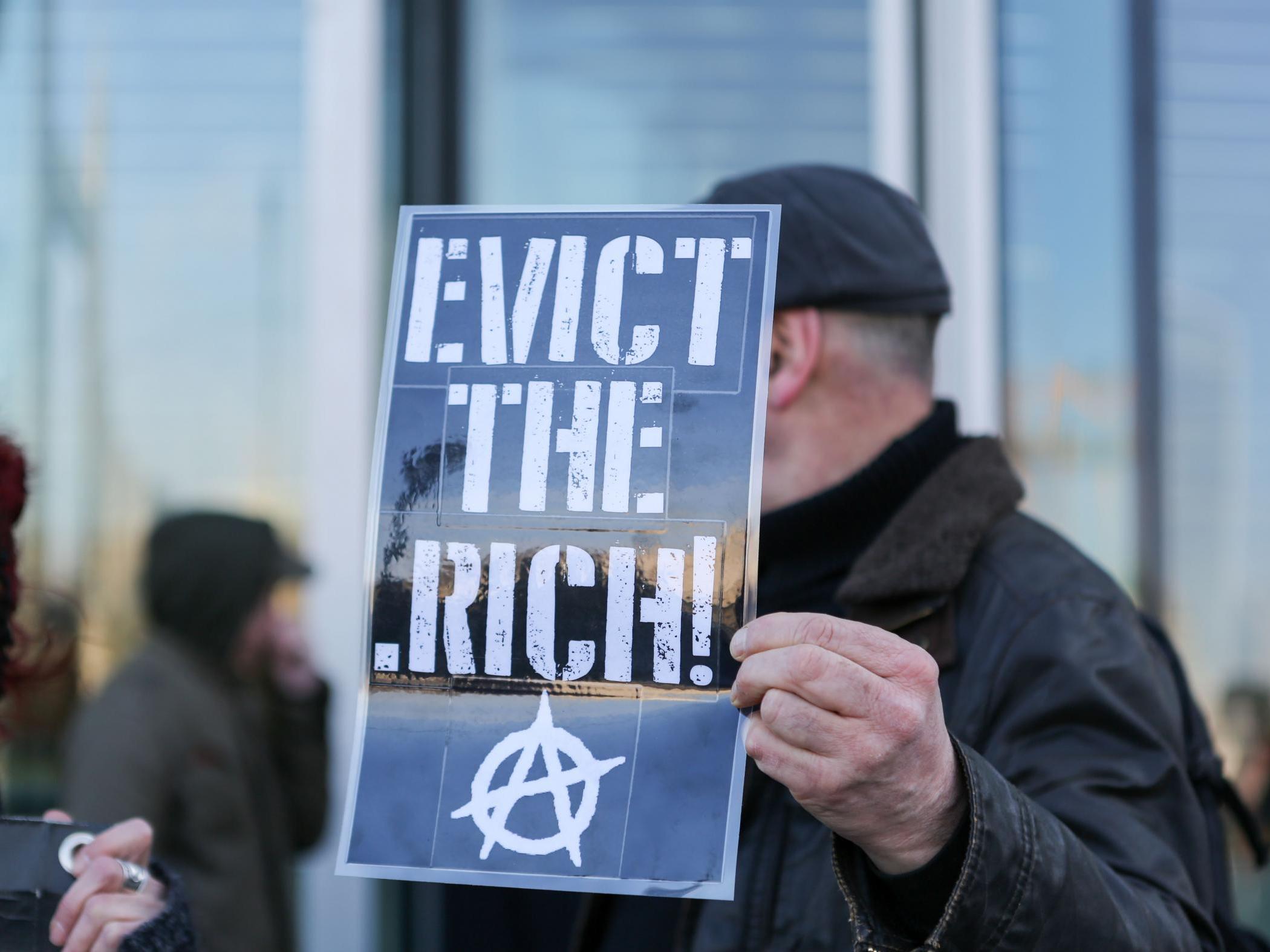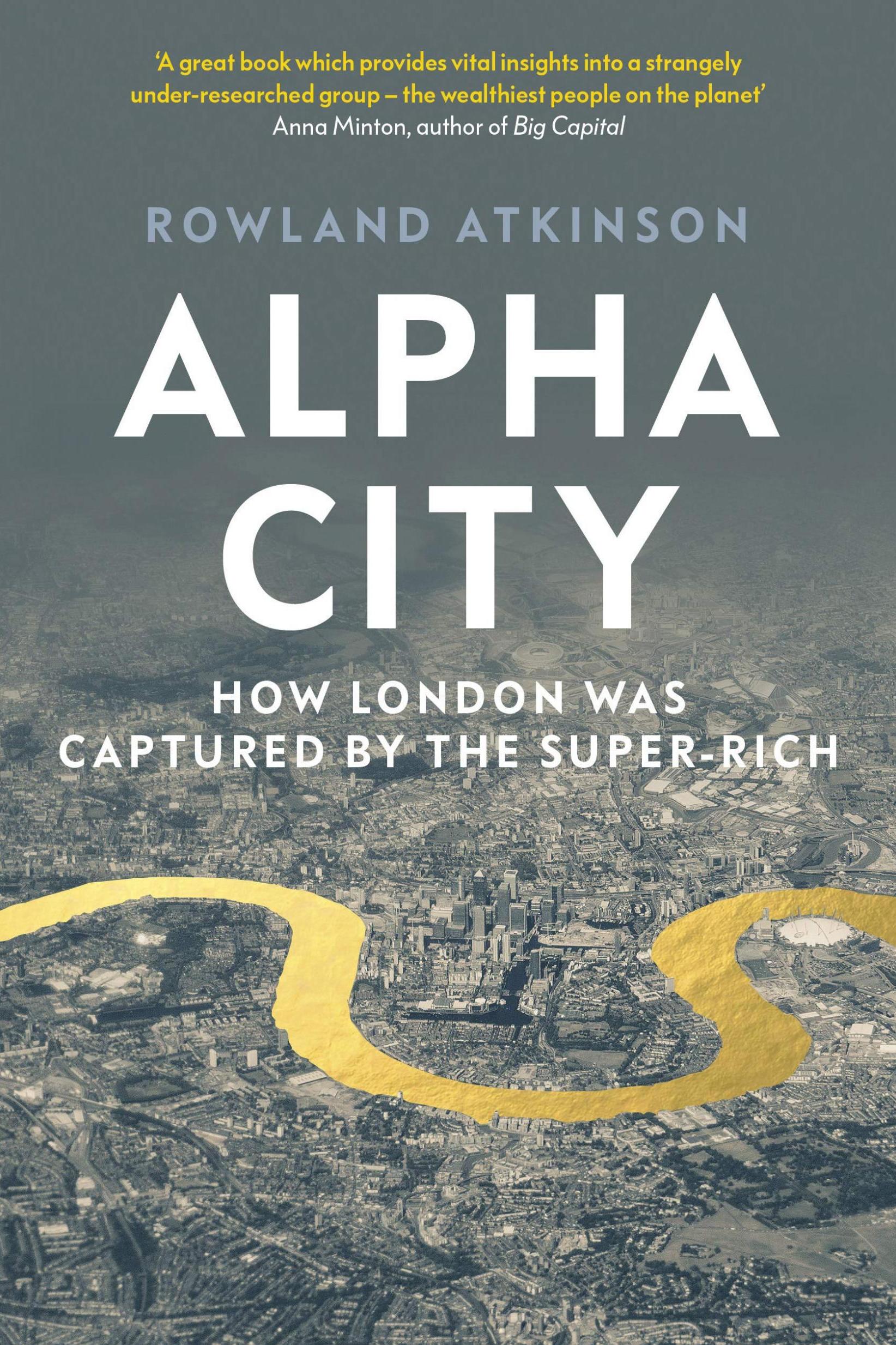London stalling: How the capital became an empty playground for the global elite
A new book, ‘Alpha City’, surveys a metropolis ensnared by the super-rich, which shines an even brighter light on inequality today, says Ceri Radford. How did things go so horribly awry?


Your support helps us to tell the story
From reproductive rights to climate change to Big Tech, The Independent is on the ground when the story is developing. Whether it's investigating the financials of Elon Musk's pro-Trump PAC or producing our latest documentary, 'The A Word', which shines a light on the American women fighting for reproductive rights, we know how important it is to parse out the facts from the messaging.
At such a critical moment in US history, we need reporters on the ground. Your donation allows us to keep sending journalists to speak to both sides of the story.
The Independent is trusted by Americans across the entire political spectrum. And unlike many other quality news outlets, we choose not to lock Americans out of our reporting and analysis with paywalls. We believe quality journalism should be available to everyone, paid for by those who can afford it.
Your support makes all the difference.Back in the swirling mists of prehistory, sometime in 2003, I moved to London straight from university. I didn’t have any contacts in the city or a family flat. But I did have the huge privilege of a graduate journalism job that let me rent a room with offensive curtains in a shared house in Zone 3, and still have spare change for too much bad house white wine. Through my twenties, I gradually clawed my way up to buying a flat with my partner. We complained about the price of rent and the cost of a deposit, looking enviously back to older peers who had had it easier – not realising quite how lucky we were to squeak through before the gates of opportunity swung shut for anyone except the rich in London.
What has happened to London house prices in recent decades is nothing short of a soul-crushing calamity. In 2020, you would need to have saved an entire average salary for 12 years just to get the deposit for a starter home in Hackney, once home of the hard-up hipster, according to Which?. Meanwhile, the poor are displaced, rattling to insecure shift work on endless night buses, as public services from youth clubs to libraries are shut. And it’s a trend that’s accelerating. A new book, Alpha City: How London was Captured by the Super-Rich, by Rowland Atkinson, explores how the high end of the London property market became a place to invest in rather than to live, with corrosive effects trickling through to the rest of the city.
For anyone with a poetic idea of London as a place of dreamers and doodlers, a literary landscape where Zadie Smith set White Teeth and Graham Greene The End of the Affair, it does not make for pretty reading. Instead of a messy urban melting pot, we discover a world of bland, shuttered luxury on half-empty streets where the only sound is an oligarch digging out a basement pool. While One Hyde Park may be the height of luxury with a price tag of an estimated £214m for a single duplex, it has reportedly stood at three quarters empty, in keeping with other super-prime developments. Atkinson uses the term “necrotectural” to describe the deathly hush of investment properties that have mushroomed across London. While much of the book veers towards the academic in tone, he occasionally – and enjoyably – lets rip:
“Much of the new development along the Thames offers a mirage of community life that evaporates on closer contact,” he writes, “as thin as the billboards on which smiling alpha-hipsters dip their perfectly sculpted bodies into private gyms and spas. The reality is a windswept microclimate generated by Ballardian high-rise monoliths.”
Inequality and dystopia in London are nothing new, of course. Few of us would want to venture back to the plague-ridden pages of Samuel Pepys’s diary or the workhouse squalor of Dickens. The upper-class social “season” in London captured by everyone from Jane Austen to Edith Wharton meant a genteel rotation between country and townhouse, the latter often standing vacant while mouldering tenements teemed.
But what marks out this last decade, according to Alpha City, is the detachment of a new cadre of super-wealthy global elite from their surroundings. Earlier waves of wealth prompted investment in the city that benefitted everyone, such as the Victorian creation of parks and public spaces. In contrast, the book documents how 20 public swimming pools have been lost in the 10 years, many to developers, while more than 50 libraries and playing fields, 30 hospitals and several care homes have also been sold off. This isn’t necessarily the fault of the wealthy themselves, but the broader political and economic system – an important point that Rowland includes, though a certain enmity simmers through for the sippers of gold-infused cocktails.
The ultra-wealthy of these pages, whether from the oil-rich Middle East or booming China or high-tech Britain, appear to live such a life of hermetic sameness that you almost pity them. Gliding from private jet to chauffeured car to private lift to identikit interior in muted metallic tones, they are on a hedonic treadmill – the psychological term for our tendency to quickly take good things for granted. They may have champagne on take-off, but they will never know the small surge of joy when you find an empty seat on a rush-hour tube.

Alpha City focuses on the pinnacle of the property market, but also explains how the rise in prices here has helped to inflate the cost of homes that are increasingly out of reach for ordinary mortals, while public spaces have been sold off to developers. There is a flip side, which Rowland mentions but doesn’t dwell on – the vast injection into the public coffers from stamp duty. Indeed, the book is polemic in tone and tends to use the term “economics” as a dirty word, shorthand for neoliberalism – the belief that the unfettered free market is the best way to allocate resources. This is something of a straw man: some of the most influential economists today, from Thomas Piketty to Mariana Mazzucato, use their expertise to measure inequality and probe the inadequacies of the current form of capitalism. It is possible to better balance the efficiency of a market economy with the humanity of a strong state. Just ask the Nordics.
Despite this quibble, it is hard to disagree with Rowland’s overall argument that something has gone horribly awry in London, from a surge in homelessness to authorities turning a blind eye as laundered money washes through the city. In today’s context, with the pandemic prompting a deep recession and waves of anger breaking out over entrenched racism, it’s an urgent reminder of the capital’s inequalities. Of the many people left behind in the alpha city, black communities are more likely to be exposed to toxic and illegal levels of air pollution – just one example of how the structure of the city itself reinforces injustice. While Oscar Wilde, a voice of London’s literary past, may have written that “we are all in the gutter, but some of us are looking at the stars”, a glimpse of the Shard is cold comfort for London’s dispossessed.
Join our commenting forum
Join thought-provoking conversations, follow other Independent readers and see their replies
Comments